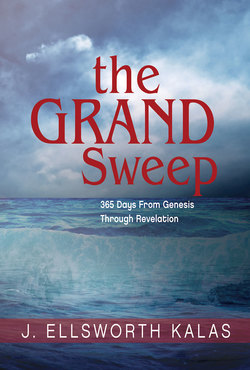Читать книгу The Grand Sweep - Large Print - J. Ellsworth Kalas - Страница 93
На сайте Литреса книга снята с продажи.
Оглавление| JOSHUA 4–6 | Week 11, Day 5 |
We need devices to help our spiritual memory even more surely than we do to assist the everyday secular process. New generations will forget the faithfulness of God to their ancestors unless there is something to help them. So the Israelites built a mound of twelve stones (4:1-9) to recall God’s faithfulness—just as we celebrate the sacrament of Holy Communion to recall our Lord’s sacrifice (Luke 22:19).
But the memory of the past is not enough; each new generation must have its own commitments. As the saying puts it, God has no grandchildren. So this new generation must be circumcised as evidence that they too are God’s covenant people (5:2-7).
And now, the victory at Jericho. Symbolism is present in the priests leading the way, blowing the rams’ horns before the Lord, with the ark of the covenant following. It is there also in the use of numbers: seven priests because seven is the number of completeness or perfection; then, six days of marching but with the victory on the seventh day, the customary day of rest, as if to say that this triumph is God’s doing, not theirs. And at last a shout, an act of faith.
Some will explain the Jericho story with the data of physics; some will see it as a miracle needing no explanation; still others will interpret it symbolically. But for Israel, it was evidence God was with them.
PRAYER: I have my Jerichos now and then, dear Lord; break their walls before me, I pray; in Jesus’ name. Amen.
What, do you think, is the meaning of Joshua’s encounter with the angelic commander of the Lord’s army?
